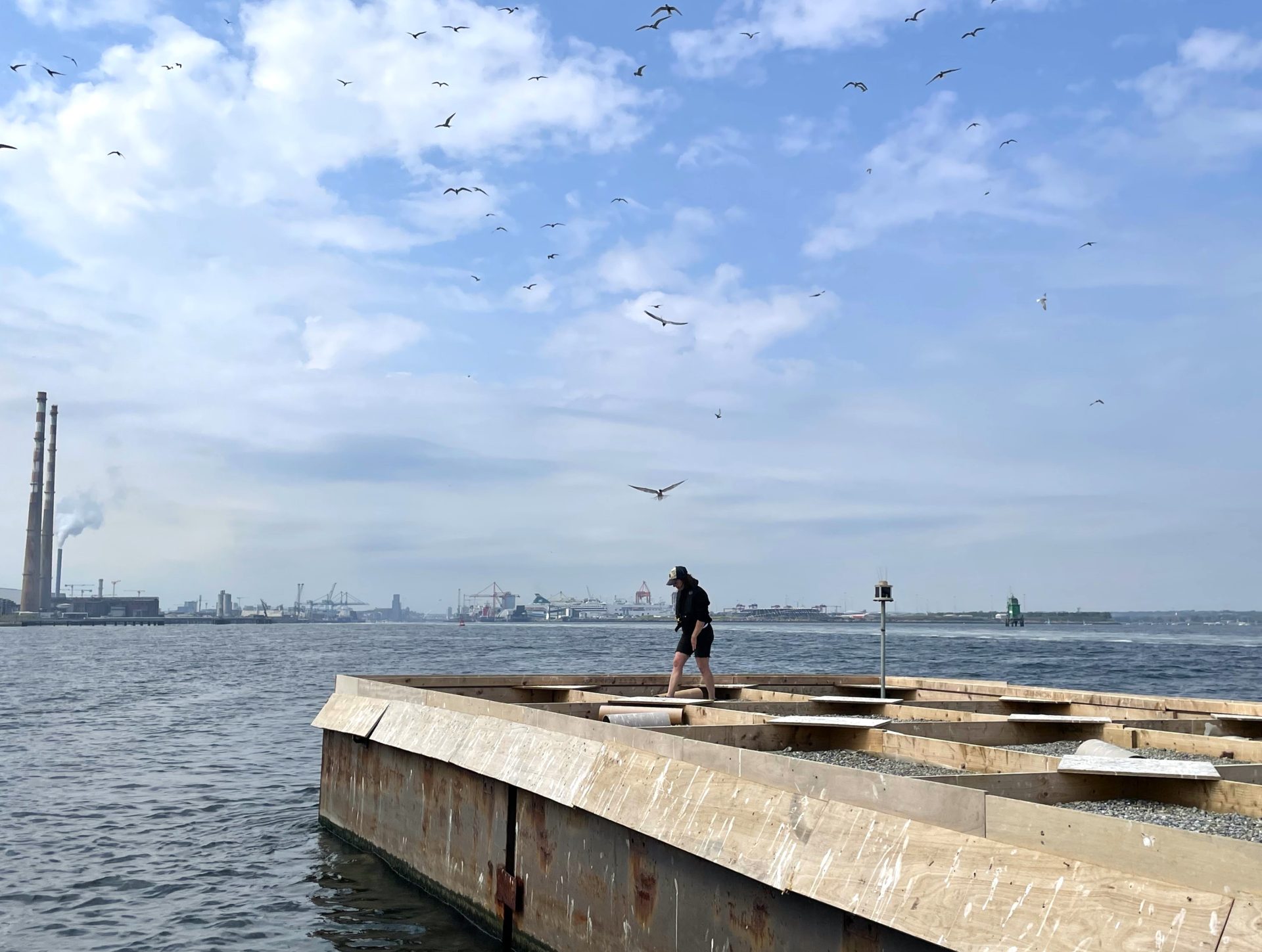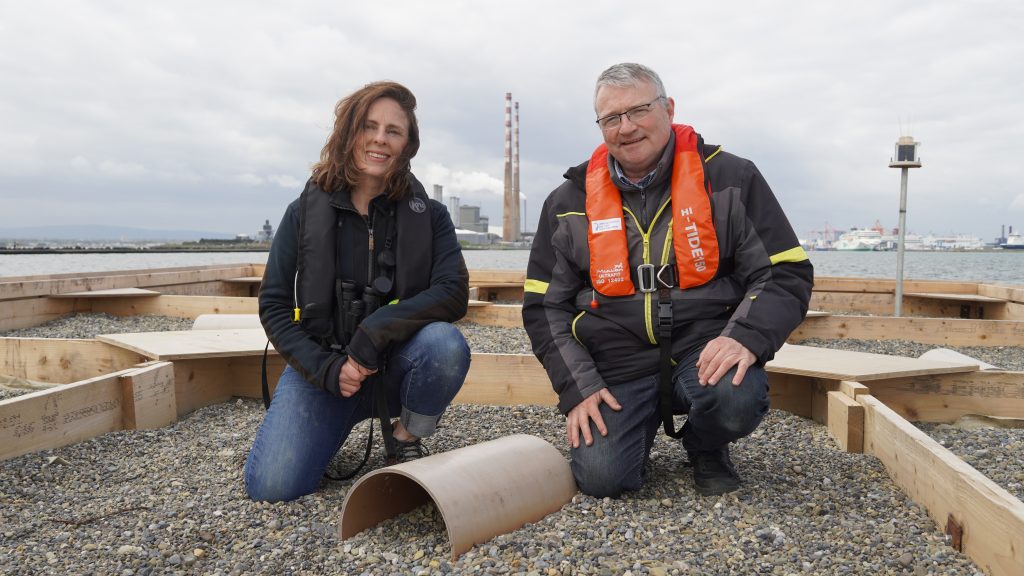Dublin Port Company Welcomes Back Terns for 2024

27 May 2024
Colony includes birds who have returned to Port over 23-year period
Dublin Port Company (DPC) is pleased to welcome back its breeding terns for the summer months.
Among these returning birds is likely an Arctic Tern that was first ringed in Dublin Port in the year 2000 and has been flying back and forth from Antarctica ever since. At least 23 years old, this is the oldest Arctic Tern on record in the Republic of Ireland. A Common Tern, also first ringed in 2000, was observed nesting in the port last year too, and has been migrating back and forth to West Africa all these years.
Dublin Port is home to a wide range of bird species throughout the year, including nesting Black Guillemots (a relative of the Puffin) and even Peregrine Falcons, the fastest bird in the world. DPC is particularly protective of the terns, who breed within the port area during the summer, as they are listed in Annex I of the EU Birds Directive due to their threatened status across Europe. There are two species of tern – the Common and Arctic – that nest in the Dublin Port colony.
BirdWatch Ireland has been researching and monitoring these birds with the support of DPC since 2013 and there is now a robust database of information, meaning a great deal more is now known about the avian inhabitants of Dublin Bay.
In anticipation of the birds’ return, DPC has recently redeployed its pontoon – purpose-built for terns – off Dublin’s iconic Great South Wall. The pontoon is specially designed to provide the seabirds with a safe place to nest and has been fitted with perimeter boards to protect from predators.
DPC originally installed this platform in 2015 following the successful deployment of the first pontoon at the Tolka Estuary in 2013. BirdWatch Ireland collaborates closely with DPC to ensure that conservation measures are in place for these protected species so they can keep thriving in this unique man-made environment.
The pontoon is located approximately 100 metres off the Half-Moon swimming club and can be seen by walkers on the Wall. There are also two other permanent structures in the port area for terns to nest.

Last year’s devastating Avian Flu had a significant impact on Dublin Port’s birds, eliminating almost 20% of the breeding adult terns along with many chicks. BirdWatch Ireland will work closely with DPC to assess for any signs of it at the tern colony this year.
These measures are just the latest example of DPC working to promote biodiversity in the Dublin Port area. It follows DPC’s recent launch of its groundbreaking eco-engineering initiative in collaboration with University College Dublin. This involved deploying artificial fish habitats along the Great South Wall that aim to enhance marine biodiversity.
Helen Boland, Dublin Bay Birds Project Manager at BirdWatch Ireland commented:
“The deployment of the pontoon represents the start of a new tern breeding season and time for us once again to make sure protective measures are in place to help the terns to have a successful year. BirdWatch Ireland is delighted to continue its collaboration with Dublin Port Company which has enabled us to significantly ramp up operations that were being done on a shoestring budget before DPC came on board in 2013.”
Eamon McElroy, DPC Port Engineer added:
“We are delighted to see the tern colonies arrive back to the Dublin Port pontoons, as they have done for 11 years now. Dublin Port Company is deeply committed to taking care of the environment in the port area in all its forms. This includes doing our part to preserve and enhance biodiversity.
“As demonstrated by our recent fish habitat collaboration with UCD and now our deployment of the pontoon at the Great South Wall, we are determined to look after all the species within our local environment.”
